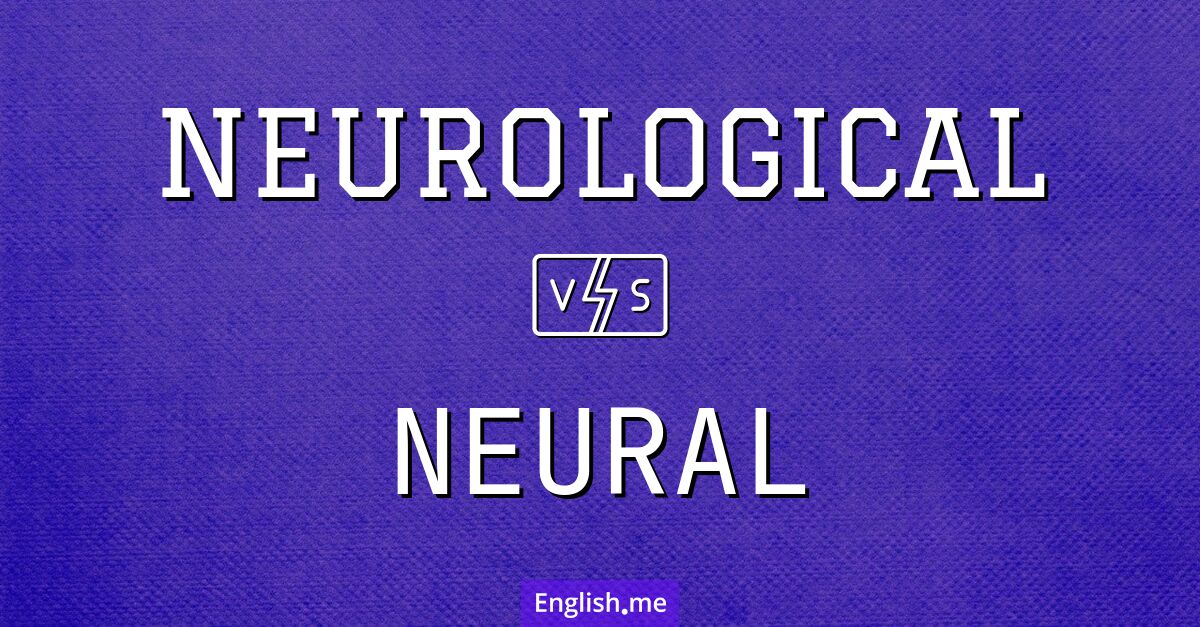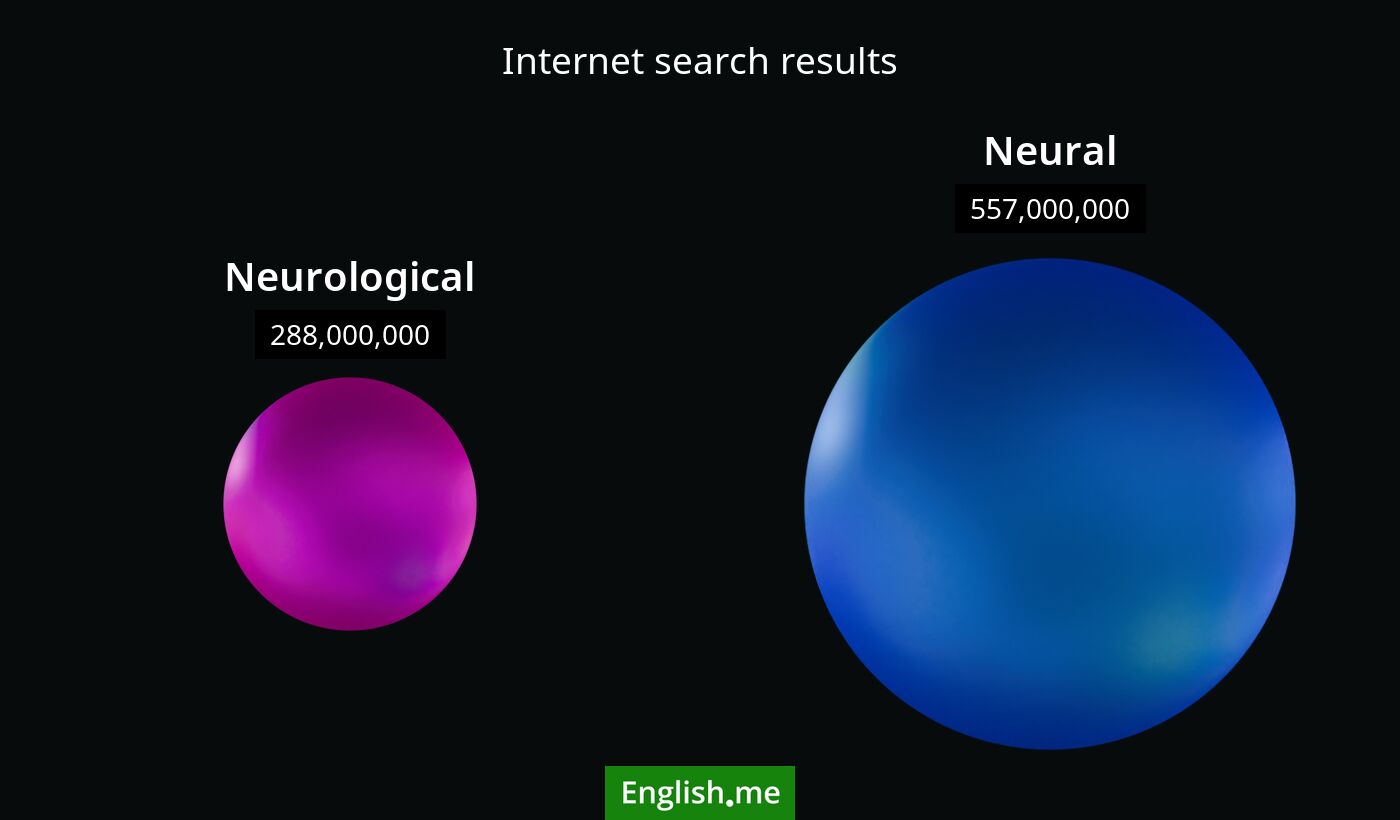"Neural" vs. "neurological": exploring the connection and distinction

 What is similar?
What is similar?
Both "neurological" and "neural" pertain to the nervous system or nerves. They are often used in contexts related to neuroscience, medicine, and the study of the brain and nervous system.
 What is different?
What is different?
"Neurological" is typically used to describe conditions, processes, or specialties that are directly related to the nervous system and its diseases. It is more often associated with medical contexts such as neurological exams or disorders. "Neural", on the other hand, is a broader term that can refer to anything related to nerves or the nervous system, including biological, computational, and developmental contexts. "Neural" might be used in phrases like neural networks in both biological and artificial intelligence domains.
 Which one is more common?
Which one is more common?

 Examples of usage
Examples of usage
Neurological- The patient was referred to a specialist for a neurological examination.
- Neurological disorders can affect various functions such as movement and cognition.
- She conducted neurological research to study the effects of the disease on the central nervous system.
- Neural networks are used in artificial intelligence to mimic brain processes.
- The study focused on the role of neural connections in learning.
- Scientists are examining neural activity patterns in response to different stimuli.

 English
English español
español française
française italiano
italiano deutsche
deutsche 日本語
日本語 polski
polski česky
česky svenska
svenska Türkçe
Türkçe Nederlands
Nederlands